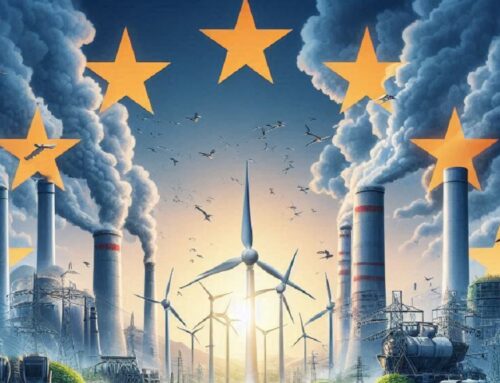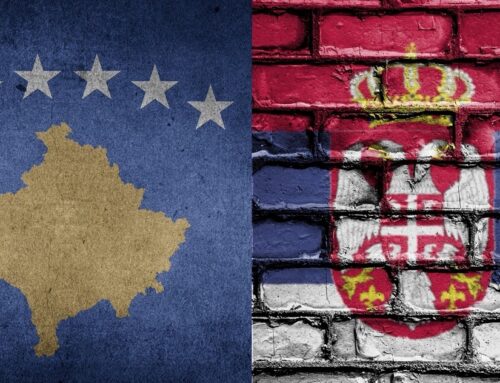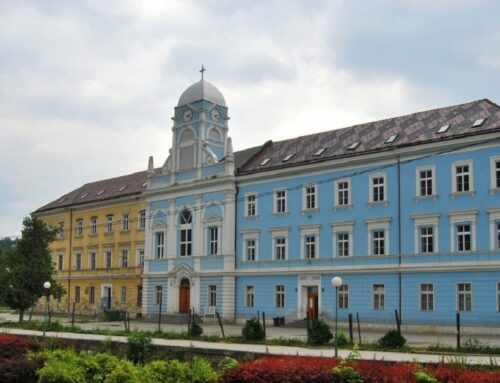The outbreak of war in Ukraine and subsequent imposition of sanctions on Russia has brought to light the pan-European vulnerabilities regarding energy dependency. The “energy war”, as it is commonly referred to, started in March when supplies through the Yamal-Europe gas pipeline were halted, and Russia introduced a procedure that required transactions concerning the sale of its gas to be conducted in rubles. Most EU countries refused to pay for Russian gas in rubles except for Hungarian leader Viktor Orban who claims that any restriction on Russian fossil fuel imports would damage Hungary’s economy. In fact, Hungary is largely dependent on Russia because 85% of its gas and 65% of oil supplies come from Russia [1]. Later on, another damaging act inflicted by Russia in its energy war involved the Nord Stream-1 pipelines running under the Baltic Sea. Moscow shut down five of the six turbines powering Nord Stream-1, justifying such a move through reference to the fact that they needed major repairs [2]. Finally, sabotage on both Nord Streams which caused massive gas leaks put the gas pipeline out of action [3]. In turn, the European Commission in March presented a later revised REPowerEU plan which was designed to end the EU’s dependence on Russian fossil fuels and speed up the green transition [4]. The eighth package of sanctions adopted in October retained the ban on sea transportation of oil, and in addition set a price cap on Russian oil [5]. As a consequence, only TurkStream and the Ukrainian network supply routes are currently operating in Europe, whose main beneficiaries are Serbia and Hungary, which both still have relatively close ties with Moscow, as well as Romania, Greece, North Macedonia, and Bosnia and Herzegovina [6].
The impact of this crisis on energy in Europe is becoming apparent in the Western Balkans in spite of the fact that the region is not as sensitive to declining imports of Russian gas. North Macedonia and Bosnia and Herzegovina import 100% of their gas from Russia, while for Serbia the share is share is 89%. Nevertheless, natural gas constitutes a small proportion of their energy mix – 2.5% and 9% in Bosnia and Herzegovina and North Macedonia respectively and 13% in Serbia [7]. Electricity production in the Western Balkans depends primarily on coal plants, responsible for 75% of the overall greenhouse gas emissions in the region [8]. The ongoing crisis also underpins the importance of accelerating the region’s green transition away from polluting and increasingly price-volatile hydrocarbons towards cleaner electricity generation, as well as greener production of energy [9]. Furthermore, the Western Balkans suffers some of the worst levels of air pollution throughout all of Europe, and so decarbonising the energy sector is the only solution that can realistically bring about both health and economic benefits. However, although the merits of a green energy transition are well-known, since the onset of the energy crisis the reverse trend has been be noticed in the region, illustrated principally by an increase in coal production levels amongst the Western Balkan countries given its relative low cost and affordability. It is unsurprising then that regional policymakers justify such commitment to coal plants by referring to soaring energy prices hitting the EU [10]. For instance, North Macedonia which has long been considered the region’s leader in attracting renewables investment, announced its intention to open two new coal mines. Beyond impacting the energy landscape within the region, the energy crisis also provides the Western Balkans with an opportunity to play a crucial geopolitical and geostrategic role in terms of energy security for broader Europe in the future. Taking into account the various pipelines, such as ‘Southern Stream’, located in the Caspian Sea basin and passing through Turkey and the Balkans which connect the EU with energy-rich countries, such as Azerbaijan and Turkmenistan, the importance of the region with regards to security of supply is clear.
Ultimately though, energy instability paired with a global economic slowdown are hanging over economic growth in the Western Balkans like the sword of Damocles; the need to assist citizens with climbing energy prices pitted against a backdrop of rising debt costs means that governments throughout the region now encounter alarming degrees of fiscal strain. Nevertheless, by pledging €1 billion to the Western Balkan states to address the immediate consequences of the energy crisis and increase energy sustainability, it is the EU that continues to embody a saviour of sorts. Through such action it reinforces its Green Agenda for the Western Balkans and demonstrates a reliable willingness to provide much needed support during periods of both stability, and instability. That Europe has moved so decisively to assist the region in such a manner should leave no doubt in the minds of Western Balkan leaders as to which side they should consider to represent its closest ally.
References:
- Cerdán, M. (2022, April 28) Hungary confirms it will pay Russia for gas and oil imports in roubles. https://atalayar.com/en/content/hungary-confirms-it-will-pay-russia-gas-and-oil-imports-roubles
- Reuters (2022, August 4) Deadlock over Nord Stream turbine as Russia says only one working. Reuters. https://www.reuters.com/business/energy/kremlin-says-gazprom-would-like-nord-stream-turbine-back-needs-documents-2022-08-04/
- Meredith, S. (2022, October 11) All you need to know about the Nord Stream gas leaks — and why Europe suspects ‘gross sabotage’. CNBC. https://www.cnbc.com/2022/10/11/nord-stream-gas-leaks-what-happened-and-why-europe-suspects-sabotage.html
- European Commission (2022, May 18) REPowerEU: Affordable, Secure and Sustainable Energy for Europe. European Comission. https://ec.europa.eu/info/strategy/priorities-2019-2024/european-green-deal/repowereu-affordable-secure-and-sustainable-energy-europe_en
- The Council of the EU and the European Council (2022, November 11). EU Response to Russia’s Invasion of Ukraine. https://www.consilium.europa.eu/en/policies/eu-response-ukraine-invasion/
- Ivanov, A. ( 2022, February 14) Pocemu u Balkan net al’ternativy rossijskomu gazu, cto by ni govorili v SSA. https://balkanist.ru/pochemu-u-balkan-net-alternativy-rossijskomu-gazu-chto-by-ni-govorili-v-ssha/
- Berishaj, V. (2021, October 21) Price panic risks derailing Western Balkans’ energy transition. Prishtina Insight. https://prishtinainsight.com/price-panic-risks-derailing-western-balkans-energy-transition-mag/
Photo: https://www.meer.com/en/66311-serbia-as-a-future-european-energy-hub




